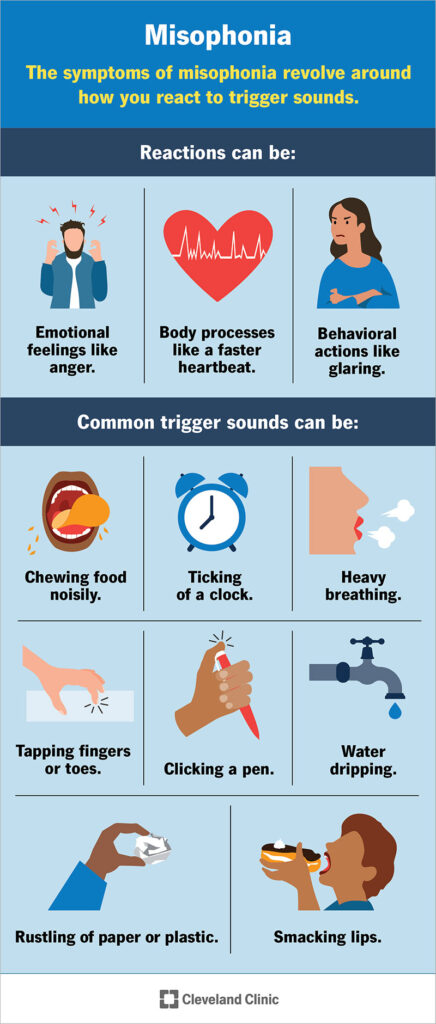
Imagine sitting down for a meal, only to feel a wave of irritation—or even rage—when someone starts chewing nearby. For people with misophonia, this isn’t just an annoyance; it’s a deeply distressing experience.
What Is Misophonia?
Misophonia is a condition where certain everyday sounds—like slurping, chewing, or pen clicking—provoke intense emotional reactions. While some may dismiss it as sensitivity, recent research suggests that misophonia is linked to the brain’s sound processing and emotional response systems.

How Common Is It?
A 2023 survey found that around 18% of the population experiences some degree of misophonia. While awareness of the condition is growing, many people still struggle in silence, often feeling misunderstood.
The Science Behind the Reaction
Recent studies reveal genetic links between misophonia and conditions like anxiety, depression, and PTSD. This suggests that misophonia may be part of a broader neurological and emotional framework rather than just an isolated issue.
Interestingly, misophonia is not linked to autism spectrum disorder. While both conditions involve sensory sensitivities, research indicates they are neurologically distinct.
Why Do Certain Sounds Trigger Misophonia?
Brain imaging studies have found that people with misophonia show heightened activity and connectivity in areas responsible for sound processing and social interactions. This could explain why misophonia tends to be more intense when the trigger sounds come from close family members rather than strangers.

Is There a Cure?
Currently, no cure exists for misophonia, but treatments like cognitive behavioral therapy (CBT) and sound masking techniques have helped many individuals manage their reactions. Some researchers are also exploring whether neuromodulation therapies could help regulate misophonic responses.
Final Thoughts
Misophonia is more than just being “easily annoyed”—it’s a genuine neurological condition that can significantly impact daily life. As research continues, the hope is to develop better treatments and increase awareness, ensuring that those affected are met with understanding rather than dismissal.
Do certain sounds trigger you? You’re not alone. Share your experiences!
Sources: ScienceAlert, TheCut, PsychologyToday, ResearchGate, Nautil.



